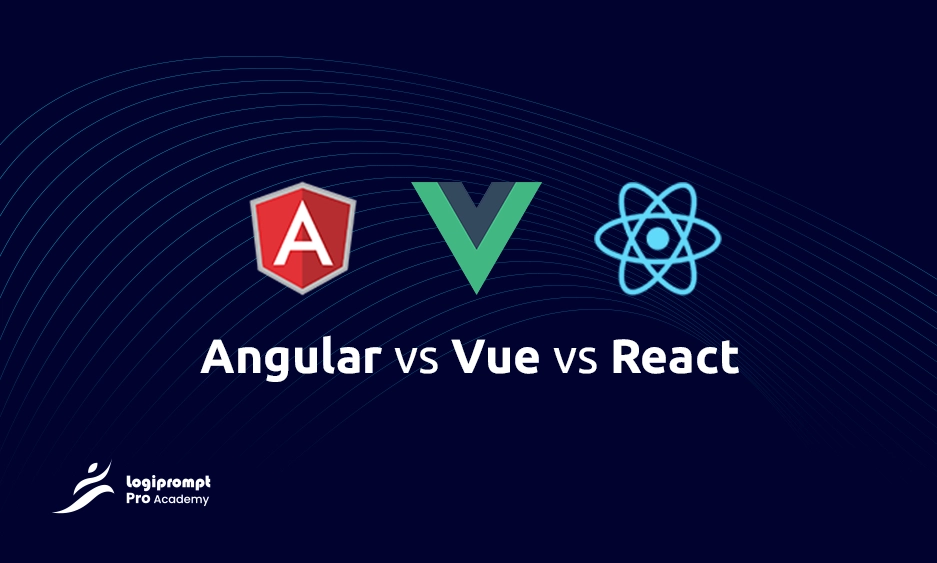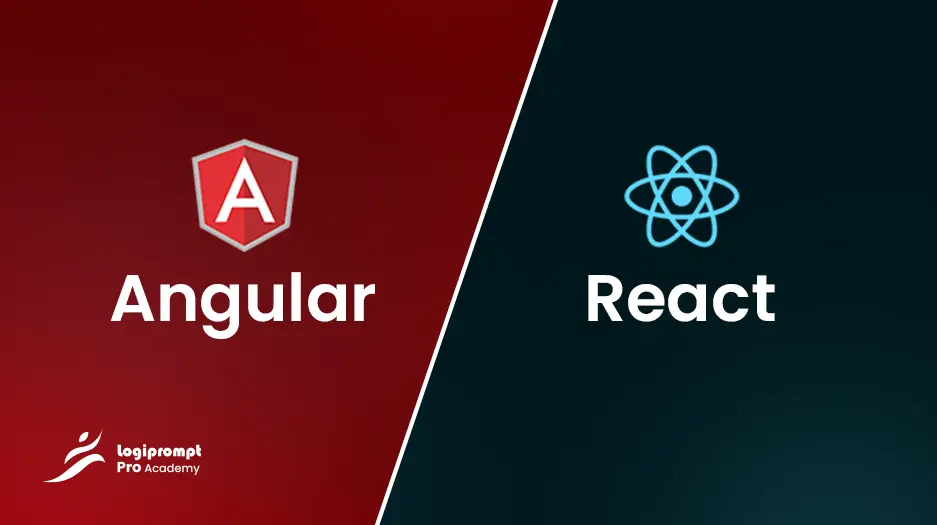Decoding the Web Trinity: React vs Vue vs Angular
by Vishnu Vijayan (Software Developer) | Updated on January 11, 2024

Web development has seen a significant evolution over the years, with various JavaScript frameworks leading the charge. Among these, React, Vue, and Angular have emerged as the frontrunners, each with its unique strengths and capabilities. This post aims to provide a comprehensive comparison of these three titans of web development.
What are React, Vue, and Angular?
React is a JavaScript library developed by Facebook for building user interfaces. It allows developers to create reusable UI components, making it an excellent choice for single-page applications and mobile applications.
Vue, on the other hand, is a progressive JavaScript framework that allows developers to build user interfaces and single-page applications. It’s designed to be easy to integrate into projects and can also function as a web application framework capable of powering advanced single-page applications.
Angular is a TypeScript-based open-source platform developed by Google. It’s used for building web applications and provides a way to organize code and extend HTML’s syntax. Angular is known for its robustness and is used in large-scale applications.
Usefulness and Performance
React’s primary strength lies in its flexibility and large community support. It’s known for its high performance, especially in complex applications. However, as applications grow, developers may encounter performance issues.
Vue is appreciated for its simplicity and performance. It’s lightweight, easy to learn, and offers a balance between React’s flexibility and Angular’s robustness. Vue applications could perform similarly to a React app but be 10-30% smaller in size.
Angular is recognized for its design and powerful command-line interface. It’s a comprehensive solution for building client-side applications. However, Angular apps might face performance issues as they grow, but these can be mitigated with various optimization techniques.
When and Where to Use
React is a good choice when developing single-page or mobile applications where state management is a key requirement. It’s also beneficial when you need to build reusable UI components.
Vue is ideal for enhancing existing HTML. It’s a great choice for projects that require a lightweight framework and for developers transitioning from other JavaScript libraries due to its simplicity.
Angular is suitable for large-scale applications due to its robustness. It’s a good choice when the development team has TypeScript proficiency and needs a comprehensive framework that includes everything out of the box.
Learning Path
React, Vue, and Angular have rich documentation and active communities, which makes learning them accessible. For React, the official React documentation is a great starting point. To learn Vue, the Vue.js Guide is an excellent resource. The Angular Getting Started Guide is perfect for beginners to Angular.
Importance
The importance of these frameworks cannot be overstated. They have revolutionized the way we develop web applications, offering more structured and efficient approaches to building complex web applications. They have large communities, provide powerful features, and continue to evolve, making them a popular choice among developers.
In conclusion, the choice between React, Vue, and Angular depends on the specific needs of the project and the expertise of the development team. Each has its strengths and is better suited to different types of projects. By understanding the key features and benefits of each, developers can make an informed decision about which to use for their next project.
Explore & Learn
Embark on a journey of knowledge and discovery with our curated collection of articles, insights, and updates to foster continuous learning and exploration.













